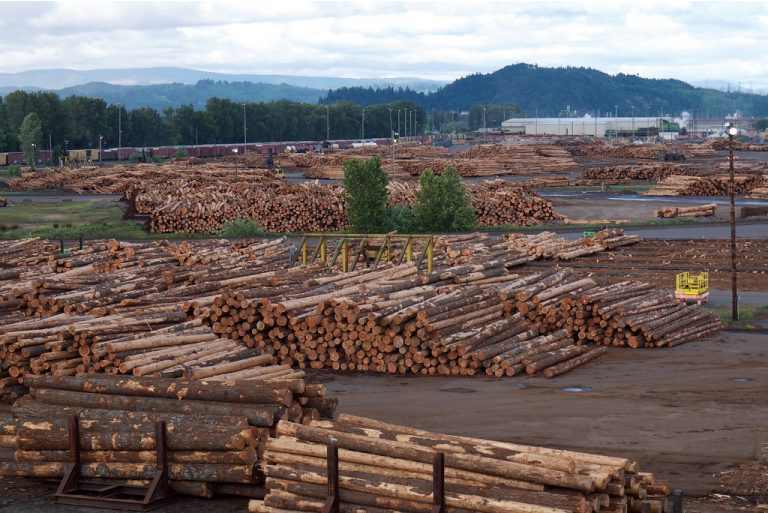Port Townsend, WA – In a major legal victory for Washington forests, Superior Court Judge Keith Harper ruled that the Department of Natural Resources violated the State Environmental Policy Act (SEPA) by failing to consider the climate impacts of two timber sales in Jefferson County, vacated DNR’s determination of non-significance for the projects, and ordered the agency to redo its SEPA analysis to address climate concerns. The Center for Sustainable Economy (CSE) and Save the Olympic Peninsula (STOP) sued to halt the Goodman 1 and Taylor Downhill Sorts timber sales in February of this year on the grounds that DNR failed to quantify and mitigate the significant greenhouse gas emissions associated with the logging projects or the effects of clearcutting on wildfire risk, flooding, heat waves, water shortages, landslides, reforestation failures and other stressors already on the rise due to climate change. The ruling is likely to extend far beyond these two timber sales by forcing DNR to redo its SEPA procedures to make sure they are compliant with the statute – which clearly requires consideration of climate impacts – and in line with the best available science for doing so.
According to Dr. John Talberth, President and Senior Economist for CSE, “As Senator Manchin has done in West Virginia for coal, Governor Inslee, Commissiner Franz and the legislature have gone to extraordinary lengths to shield the timber industry from climate regulation, including passing legislation that declares logging to be a climate solution and entirely ignoring the enormous climate impacts of clearcutting when making forest management decisions. This ruling will help turn things around by requiring DNR to report greenhouse gas emissions associated with logging and evaluate the extent to which clearcutting is making the land hotter, drier, and more susceptible to wildfires.”
The case revolved around DNR’s refusal to even mention climate change when it approved the two timber sales after CSE and STOP provided extensive scientific evidence about how logging projects such as these are generating significant quantities of GHG emissions and making the land more vulnerable to climate change. According to Jefferson County’s recent Forest and Trees GHG inventory, logging is by far the greatest source of carbon pollution in the county. Despite this, DNR offered no explanation of why it ignored climate impacts except to say that “the SEPA Environmental Checklist does not include analysis of climate impacts.” CSE and STOP disputed this fact, and today’s ruling validates their position. During the late stages of litigation, DNR offered another explanation: that since DNR forestlands absorb more carbon than is given off by logging there is no effect on climate.
According to attorney Claudia Newman, who argued the case before Judge Harper today, “Judge Harper issued a well-reasoned decision that is consistent with law. DNR’s position in this case was untenable. The agency does not have unbridled discretion to ignore its climate related duties under SEPA for timber sales.”
One of the key arguments plaintiffs advanced was that by failing to address climate impacts of logging at all, DNR is overlooking alternatives that are better for climate but keep logs flowing to where they are needed – such as using variable density thinning instead of clearcutting in order to retain shade and promote natural regeneration. According to Ron Richards, Director of STOP, “Without addressing the climate impacts of logging during SEPA, none of these win-win-win solutions will see the light of day. In addition to thinning instead of clearcutting, these solutions include protecting older ‘legacy’ forests from logging and earning revenues from carbon markets, as DNR is now beginning to do elsewhere.”
For more information about the case, including copies of all pleadings, visit:
https://www.sustainable-economy.org/washington-drn-sued-for-failing-to-account-for-the-climate-impacts-of-its-logging-proposals.



